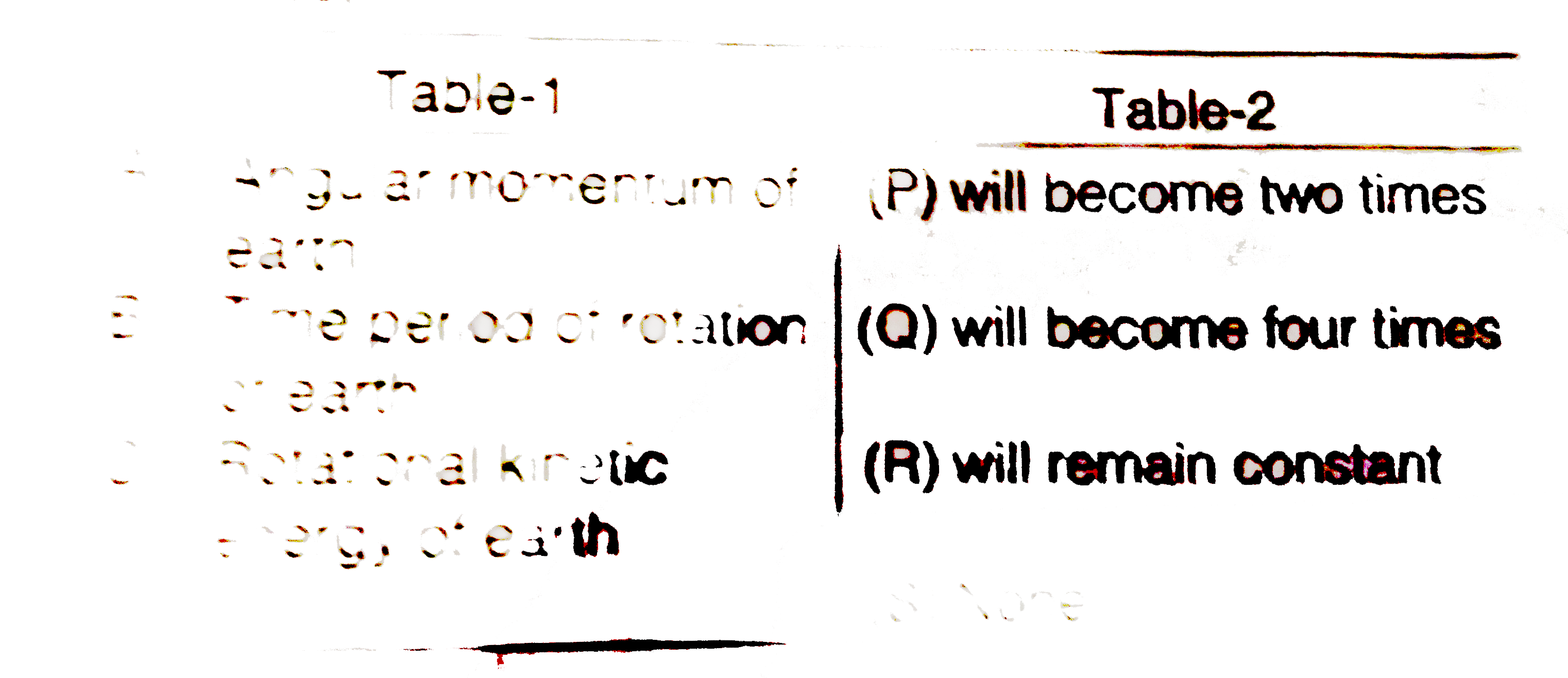If the density of a planet is half without any change in its radius, how does 'g' change on the planet.
To determine how the gravitational acceleration 'g' changes on a planet when its density is halved without any change in its radius, we can follow these steps:
1. Understand the formula for gravitational acceleration: The gravitational acceleration 'g' at the surface of a planet is given by the formula:
g=G⋅MR2
where G is the gravitational constant, M is the mass of the planet, and R is the radius of the planet.
2. Express mass in terms of density: The mass M of the planet can be expressed in terms of its volume and density. For a spherical planet, the volume V is given by:
V=43πR3
Therefore, the mass M can be expressed as:
M=V⋅Density=43πR3⋅ρ
where ρ is the density of the planet.
3. Substitute mass into the formula for 'g': Now, substituting the expression for mass M into the formula for gravitational acceleration g:
g=G⋅(43πR3⋅ρ)R2
4. Simplify the equation: Simplifying the equation gives:
g=43πG⋅R⋅ρ
This shows that gravitational acceleration g is directly proportional to the density ρ of the planet.
5. Analyze the effect of halving the density: If the density of the planet is halved, we can express the new density as:
ρ′=ρ2
Substituting this into the equation for g:
g′=43πG⋅R⋅(ρ2)=12(43πG⋅R⋅ρ)=g2
6. Conclusion: Therefore, when the density of the planet is halved without any change in its radius, the gravitational acceleration g on the planet also becomes half of its original value.
Final Answer:
If the density of the planet is halved, the gravitational acceleration g on the planet will also be halved.
---
g=G⋅MR2
where G is the gravitational constant, M is the mass of the planet, and R is the radius of the planet.
V=43πR3
Therefore, the mass M can be expressed as:
M=V⋅Density=43πR3⋅ρ
where ρ is the density of the planet.
g=G⋅(43πR3⋅ρ)R2
g=43πG⋅R⋅ρ
This shows that gravitational acceleration g is directly proportional to the density ρ of the planet.
ρ′=ρ2
Substituting this into the equation for g:
g′=43πG⋅R⋅(ρ2)=12(43πG⋅R⋅ρ)=g2
If the density of the planet is halved, the gravitational acceleration g on the planet will also be halved.
Topper's Solved these Questions
- BOOK - CBSE COMPLEMENTARY MATERIALCHAPTER - GRAVITATIONEXERCISE - SHORT ANSWER TYPE QUESTIONS (2 MARKS)23videos
GRAVITATION
- BOOK - CBSE COMPLEMENTARY MATERIALCHAPTER - GRAVITATIONEXERCISE - SHORT ANSWER TYPE QUESTIONS (3 MARKS)8videos
GRAVITATION
- BOOK - CBSE COMPLEMENTARY MATERIALCHAPTER - DIMENSIONS AND MEASUREMENT EXERCISE - M.C.Q PHYSICAL WORLD & MEASUREMENT20videos
DIMENSIONS AND MEASUREMENT
- BOOK - CBSE COMPLEMENTARY MATERIALCHAPTER - KINEMATICSEXERCISE - M.C.Q.20videos
KINEMATICS
Similar Questions
Knowledge Check
- Question 1 - Select One
If the density of the planet is double that of the earth and the radius 1.5 times that of the earth, the acceleration due to gravity on the planet is
A4/3 times that on the surface of the earthB3 times that on the surface of the earthC3/4 times that on the surface of the earthD6 times that on the surface of the earth - Question 2 - Select One
If the radius of earth shrinks by 0.2% without change in its mass, the % change in its angular velocity is
Aincreases by 0.4%Bincreases by 0.1%Cdecreases by 0.4%Ddecreases by 0.1% - Question 3 - Select One
If the density of a small planet is the same as that of earth while the radius of the planet is 0.2 times that of the earth the gravitational on the surface of that planet is :
A0.2gB0.4gC2gD4g
If radius of earth is reduced to half without changing its mass,
 View Solution
View SolutionHow does the density of a solid change with minor changes in temperature?
View Solutionthe escape velocity on a planet is v. if the radius of the planet contracts to 14 of the present value without any change in its mass, the escape velocity will be
View SolutionIf the radius of the earth shrinks by 0.2% without any change in its mass, the escape velocity from the surface of the earth
View SolutionIf radius of the earth is doubled without change in its mass, what will be the length of the day?
View Solution

